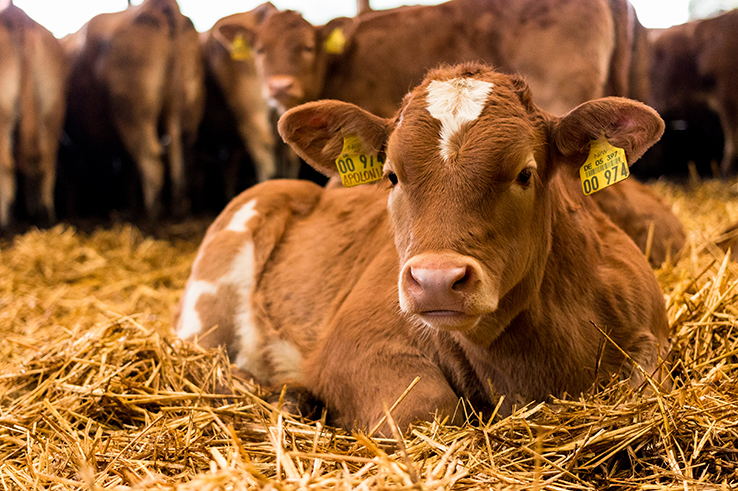Amino Acids – the protein building-blocks
Amino acids are vital for all living beings to build proteins. The body needs around 20 different amino acids to make these proteins and function correctly. Ten of these amino acids are so-called essential, meaning that the animal is not able to synthesise them itself and must rely on supplementation via feed.

Why amino acids are so important
Our livestock needs amino acids at the right time in the right quantity for protein synthesis, i.e. the increase in muscle mass, growth or the production of meat, milk and eggs. If just one of the essential amino acids is missing, the protein synthesis grinds to a halt.
That is why it is important that the feed they are given contains as many amino acids as possible in the required quantity. Individual amino acids, such as lysine, methionine, threonine, tryptophan, valine etc. can be supplemented to make sure growth processes are not interrupted.
Covering the amino acid requirement without adding amino acids to the feed is only possible with a considerable protein oversupply. This puts a strain on the metabolism of the animals and also on the environment through increased nitrogen excretion.

Did you know?
- The use of amino acids in feed reduces nitrogen excretion by 35%.
Selected amino acids
L-valine
Taurine
DL Methionine

Quality and Trust
The Quality and Trust programme ensures a high-quality in our feed additives.

Need assistance?
For further information or if you need help in finding the right product or solution, please contact us.
Related publications

Performance and health of early lactating dairy cows under long-term environmental heat stress
The present study sought to determine the impact of dietary inclusion of Loprotin on early lactation high producing dairy cows during a period of long-term environmental heat stress.




